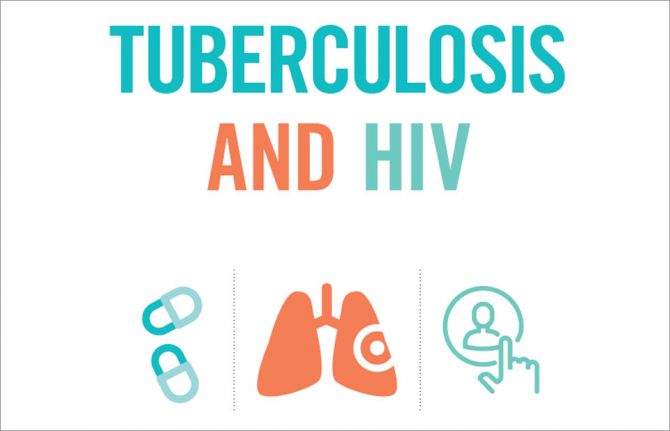

Press Release
UNAIDS reports mixed progress towards reaching the 2020 target of reducing TB deaths among people living with HIV by 75%
22 March 2019 22 March 2019Five countries met the target three years ahead of the 2020 deadline and 18 more are on track; however, most countries are lagging behind and risk missing the target completely. UNAIDS urges countries to step up action.
GENEVA, 22 March 2019—Ahead of World Tuberculosis Day, on 24 March 2019, UNAIDS is urging countries to step up action to meet the 2020 target of reducing tuberculosis (TB) deaths among people living with HIV by 75%, as outlined in the 2016 United Nations Political Declaration on Ending AIDS. World Health Organization estimates show that, globally, TB deaths among people living with HIV have fallen by 42% since 2010, from 520 000 down to 300 000 in 2017.
The estimates show that, by 2017, five low- or middle-income countries achieved or exceeded the target of a 75% reduction in TB deaths among people living with HIV, three years ahead of schedule—India (84%), Eritrea (83%), Djibouti (78%), Malawi (78%) and Togo (75%). A further 18 countries reduced TB deaths among people living with HIV by more than 50% and are on track to achieve the target by the end of 2020, provided that scale-up of services is maintained. However, the estimates also show that most countries are not on track and that deaths are rising in some regions and countries.
“TB should be a disease of the past. It has been treatable and preventable for decades. Years of neglecting the rights of the world’s poor to basic health care, food and shelter have let TB take hold and allowed resistance to build,” said Michel Sidibé, Executive Director of UNAIDS. “People living with HIV are especially at risk. There is still a chance for many countries to meet the target, but we have to act now―it’s time to end TB and AIDS.”
Around 40 countries showed a rise in the number of TB deaths among people living with HIV between 2010 and 2017. In eastern Europe and central Asia, the number of TB deaths among people living with HIV increased by 22% between 2010 and 2017, with increases being seen in all but three countries in the region. In Latin America, deaths rose by 7%. The lack of progress in some countries is a clear indication that further efforts are needed to address the main challenges, including the need for equity and ensuring that vulnerable groups have access to integrated HIV and TB services.
To accelerate progress in reducing TB deaths among people living with HIV and reach the 2020 target, UNAIDS is urging countries to fully integrate TB and HIV services and to use community-based approaches to find, diagnose and treat the missing cases. Countries need to screen all people living with HIV for TB and all people with TB need to be tested for HIV. The quality of TB and HIV diagnosis also needs to be improved. HIV and TB prevention efforts need scaling up, particularly for people at higher risk of infection. In addition, all people diagnosed with TB and HIV need immediate access to treatment and support to adhere to their treatment regimens.
“Although progress is mixed, we can see that the target can be met, and a large number of countries can get there if they act with urgency and use focused community-based approaches,” said Mr Sidibé. “I cannot stress enough how critical it is to integrate TB and HIV services so that people can be screened, tested, treated and offered prevention for both diseases, ideally under the same roof, by the same health worker and on the same day. This is an approach that we know saves lives.”
With less than two years to achieve the target, UNAIDS is urging all countries to step up action and partners to work together to ensure that all people affected by HIV and TB have access to effective prevention and treatment services.
TB is the top infectious killer worldwide, claiming around 4400 lives a day. TB also remains the leading cause of death among people living with HIV, causing one in three AIDS-related deaths. In 2017, 1.6 million people died from TB, including around 300 000 people living with HIV.
UNAIDS
The Joint United Nations Programme on HIV/AIDS (UNAIDS) leads and inspires the world to achieve its shared vision of zero new HIV infections, zero discrimination and zero AIDS-related deaths. UNAIDS unites the efforts of 11 UN organizations—UNHCR, UNICEF, WFP, UNDP, UNFPA, UNODC, UN Women, ILO, UNESCO, WHO and the World Bank—and works closely with global and national partners towards ending the AIDS epidemic by 2030 as part of the Sustainable Development Goals. Learn more at unaids.org and connect with us on Facebook, Twitter, Instagram and YouTube.
Contact
UNAIDSSophie Barton-Knott
tel. +41 22 791 1697 / +41 79 514 6896
bartonknotts@unaids.org
UNAIDS
Media
tel. +41 22 791 42 37
communications@unaids.org
Press centre
Download the printable version (PDF)
